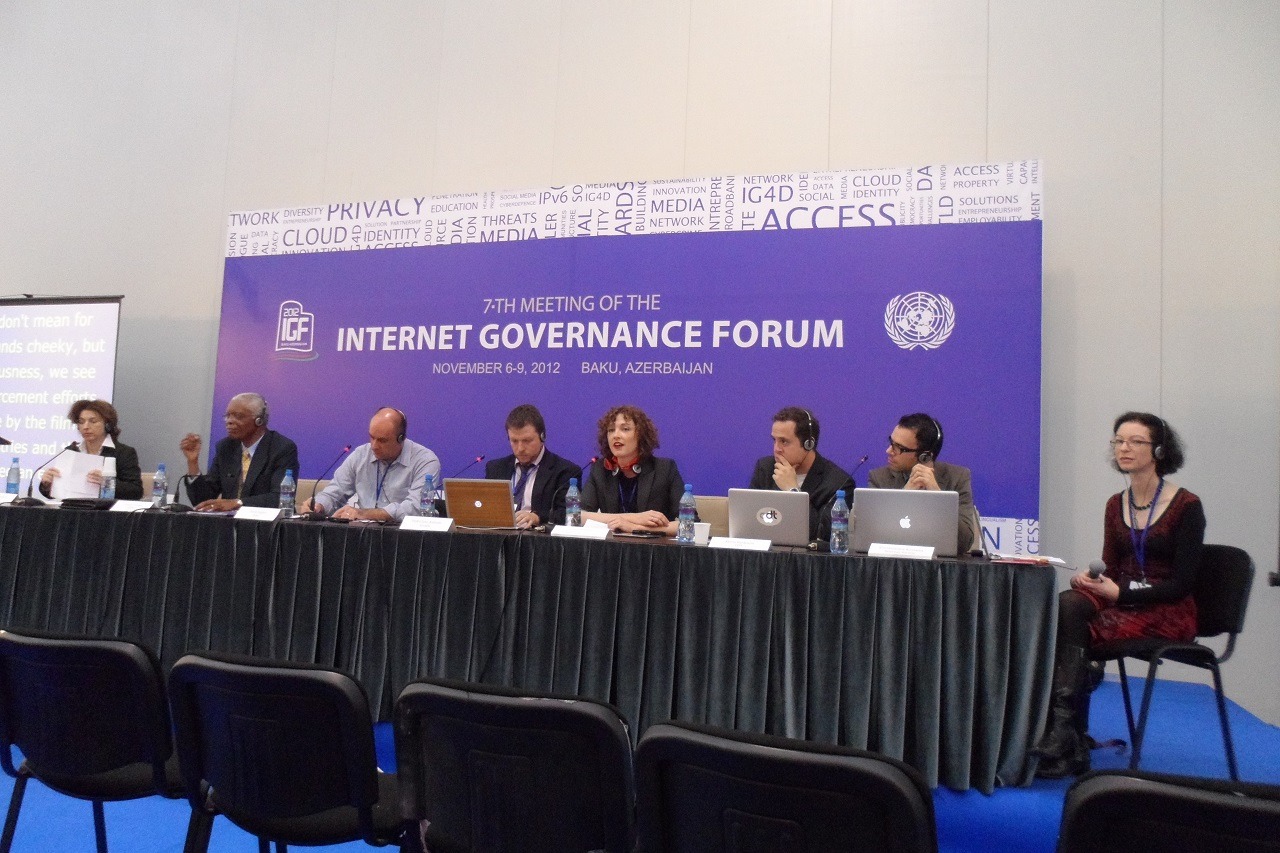Internet Policy Infrastructure for Sustainable Internet Development: Lessons from Attempts at IP Enforcement
Exploring the policy and governance issues
Our Panelists:
David Hughes, Senior Vice President of Technology at RIAA;
Pedro Less Andrade, Director of Public Policy for Latin America, Google Inc. (GRULAC);
Kevin Bankston, Center for Democracy & Technology (WEOG);
Frank La Rue, UN Special Rapporteur on the promotion and protection of the right to freedom of opinion and expression (GRULAC);
Desiree Miloshevic, Senior Advisor, Public Policy & International Affairs at AFILIAS (WEOG);
Kurt Opsahl, Senior Staff Attorney, Electronic Frontier Foundation (WEOG);
Konstantinos Komaitis, Policy Advisor, Internet Society (WEOG)
Another day starts at the wake of the last night opening ceremony and gala dinner. I have to say that from my apporach and discussions with new found friends and people from different organisations. You can bet when people who understands the various situations and talking about them and sharing ideas is quite interesting as these can go on for hours for discussion or endless hours of talking about the whole policy affairs. Beleive me people this can really be a great un finished debate. I was actually presented to Richard who is the Director of Policy – EMEA from Facebook. And people get down to it these can really be interesting debates.
So we are going down to doing same today… “policy”
This is a very good session and talking about some policies and it is turnong out to be quite an interesting IGF and somehow what i am seeing as a wonderful accord is that there is really a common sense from the many stakeholders. The underline is that we all fully agree that copyright the way we know it is really something when it comes to internet has revolutionised and changed drastically. Where do we stand?
Clearly we agree that the laws needs to be brought up to date. I am wondering with the technology going so fast and trying to catch up may well be quite of a hassle really. The law process is so slow to develop and getting there even at the national level of any country.
My question is don’t we think using a platfrom such as IGF and working out an aligned UN approach international law that could eventually do just the trick that countries can really adopt. I am starting to believe that this is very important way to approach it. Since internet has no frontiers and jurisdiction why not go for an international jurisdiction and a standard law that would just make things better.
But certainly today something that is really very very important that has really done to the extremes is intellectual property and user rights are really on the chasm.
Seriously people where are we standing today…. this session has and is proving to be quite interesting and not many people around though. Whilst i agree that technicalities are important but understanding the real thing which is the law and policy making does not work out without getting these right.
People, i would like to hear from you….can you share those ideas … we have a panel but how about the people reading ….
Kris
